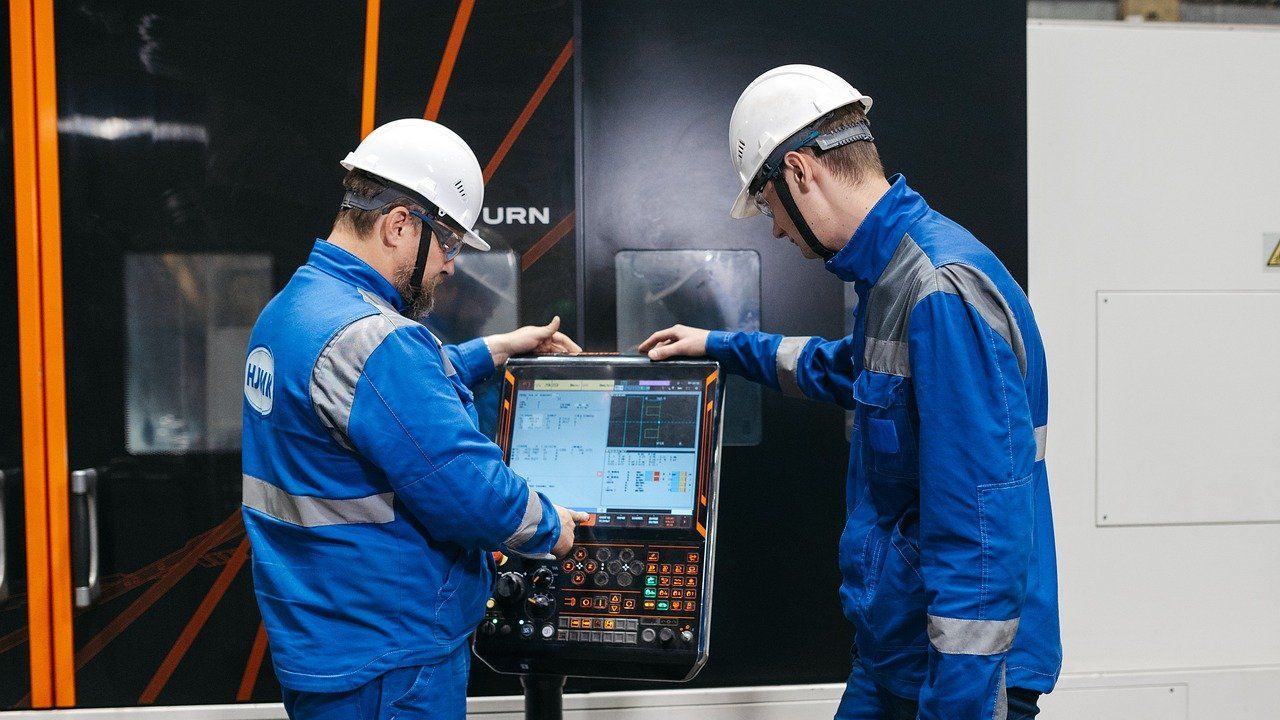
5 Tips for Cultivating Personal Authenticity in Manufacturing
In the world of manufacturing, we’re often focused on output, efficiency, quality, and safety — and rightly so. But there’s another layer to success on the floor and in the office: how we show up as people.
Personal authenticity is the practice of being true to yourself — in your values, actions, and relationships. It means being honest, real, and consistent, whether you're running a machine, leading a shift, or supporting operations from behind the scenes. And in a work environment where trust, communication, and collaboration are key, authenticity isn’t just a personal trait — it’s a powerful asset. That might sound like something from a self-help book, but here’s the truth: authentic people are easier to work with, lead stronger teams, and feel better doing their jobs.
In this post, we’ll explore five practical tips for cultivating authenticity — and why it matters in a manufacturing setting.
Why Authenticity Matters at Work
Authenticity isn’t about being perfect or always having the right answers. It’s about being genuine and grounded. And that has real impact:
- Trust goes up – Coworkers know where you stand and are more likely to follow your lead.
- Communication improves – When people feel safe to speak up, problems get solved faster.
- Teamwork strengthens – Realness builds respect. Pretending builds tension.
- You feel more fulfilled – When your work reflects your values, it’s easier to take pride in what you do.
- It supports safety and quality – People who are comfortable being real are more likely to report issues and offer ideas.
No matter your role, being authentic helps you connect, contribute, and grow in ways that benefit both the individual and the team.
5 Tips for Cultivating Personal Authenticity in a Manufacturing Environment

1. Reflect on & Clarify Your Core Values (Know What Matters to You)
Take a few minutes to think about what you stand for. Is it respect? Hard work? Doing things right? Looking out for your crew? Once you know your core values, you can make decisions and speak up in ways that feel true to who you are.
Why it matters:
Having clarity of values builds internal alignment (you know where to “draw the line”) and external consistency (your team can see what you stand for). That consistency is a foundation of credibility.
2. Cultivate Self-Awareness
Notice how you react during the day. Do you shut down when you’re frustrated? Do you get snappy when something goes wrong? Start asking yourself: What’s really bothering me here? The more you understand yourself, the more you can deal with stress in healthier ways — and avoid saying or doing things that don’t reflect who you are.
Why it matters:
Self-awareness is at the heart of authentic behavior. It helps you catch misalignment early and course-correct rather than spiraling into reactive, inconsistent behavior.

3. Express Yourself - Respectfully - and Invite Others to Do the Same
It’s okay to speak up, even if it’s not what others want to hear. You can be honest and respectful at the same time. Whether it’s during a huddle, a safety meeting, or just one-on-one with a teammate — your real voice matters.
Why it matters:
Authenticity is relational—it’s felt by others. When you express genuine thoughts, it frees others to share theirs, and over time this builds trust, openness, and better alignment in daily operations.
4. Own Your Mistakes — and Don’t Be Afraid to Learn

Everyone messes up. Authentic people don’t pretend to be perfect. When things don’t go as planned, share learnings rather than pretending everything went smoothly.
Being authentic means showing up as a work in progress — open to learning, okay with feedback, and willing to admit when you’ve made a mistake.
Why it matters:
Transparency reduces suspicion and rumor. Owning mistakes demonstrates integrity. Together, they reinforce that you are consistent and real—not hiding behind facades.
5. Be the Same Person — No Matter Who’s Watching
Whether you’re talking to a team member, a manager, or a visitor from corporate, authenticity means staying consistent. You don’t put on a different face for different people — you lead (and work) from a place of integrity.
Why it matters:
When you treat everyone with respect — not just the people above you — people notice. It builds trust and keeps the culture strong.
Final Thought: Authenticity Is Strength
In a fast-paced manufacturing environment, authenticity keeps things real. It builds strong teams, supports better decisions, and helps everyone feel more connected to the work. Being authentic isn’t about being perfect. It’s about being real, honest, and showing up as you — even when that means being vulnerable. In a manufacturing setting, that’s powerful. It makes the floor a better place to work and helps everyone go home with less stress and more pride.
So whether you’re welding parts, leading a crew, running a press, or coaching from the office, ask yourself:
- Am I showing up as my real self?
- Am I aligned with what I believe in?
- Am I treating others the way they want to be treated?
When the answer is yes, the work flows better — and so does everything else.
Take it further
Authentic leadership drives trust — and trust drives performance. If you want to strengthen both, my free 3-Step Guide to Meeting Production Schedules Profitably offers a practical framework drawn from four decades in manufacturing leadership. It’s built for leaders who want predictable performance and engaged teams.
Subscribe to Driven Weekly
Subscribe to our free weekly newsletter, with high-impact lessons you can start implementing TODAY.





